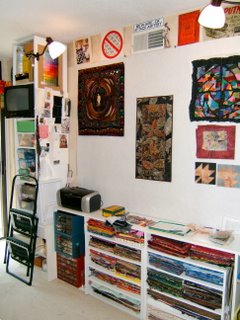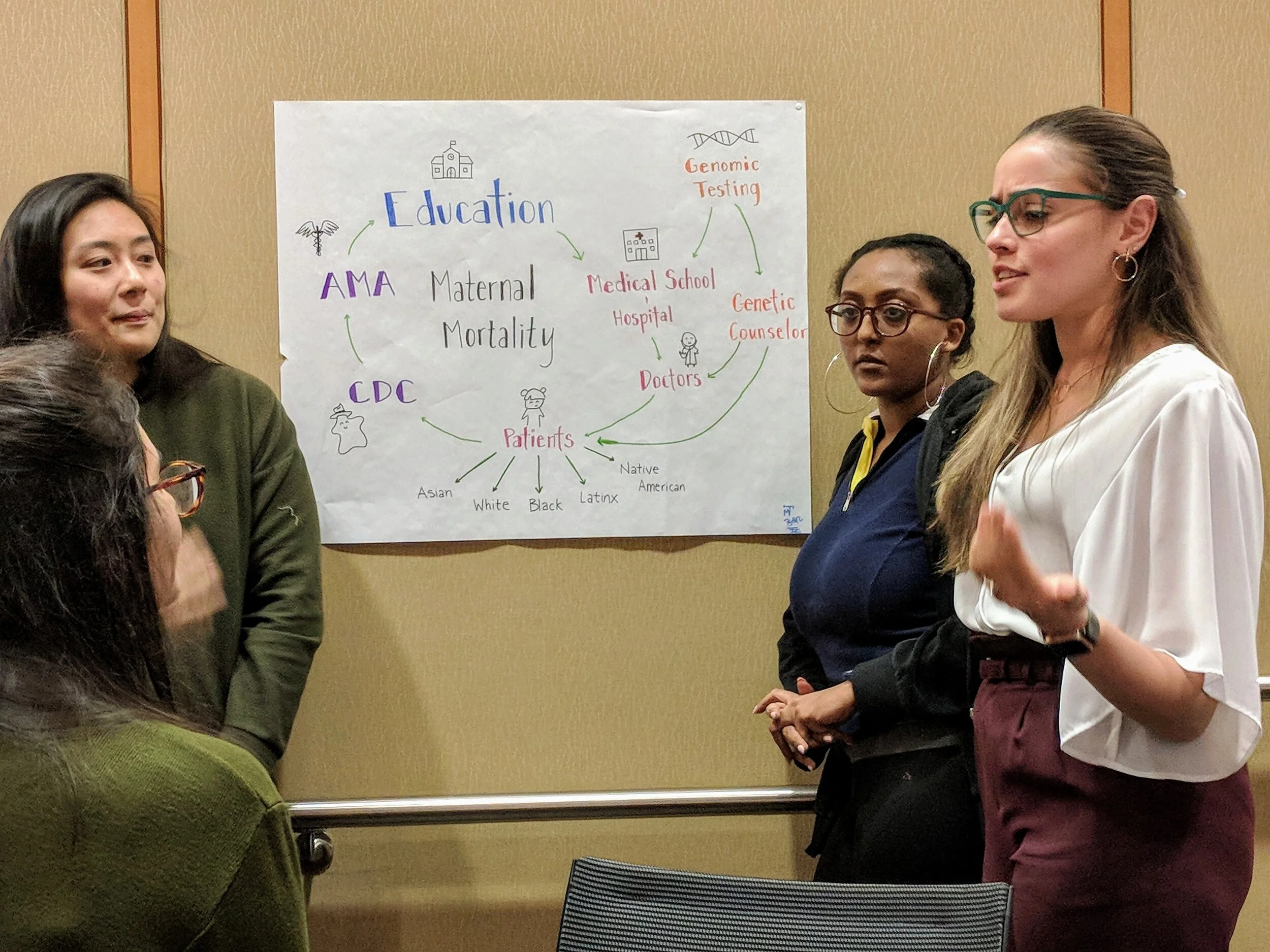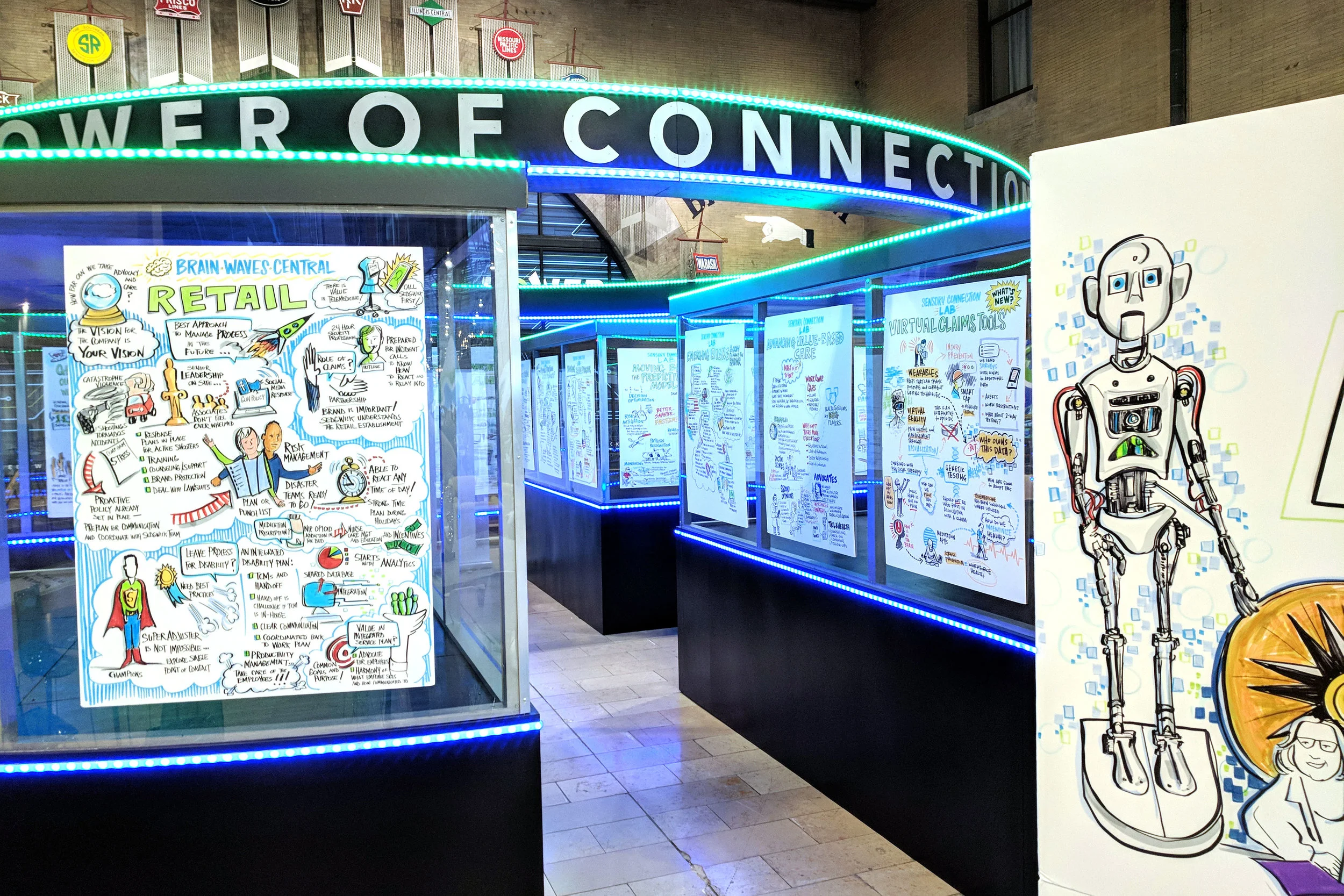 As we approach the new year, we are looking forward to many new projects that combine a whole gaggle of interests and interfaces -- podcasting, videoblogging, graphic facilitation, social innovation, and on and on.
As we approach the new year, we are looking forward to many new projects that combine a whole gaggle of interests and interfaces -- podcasting, videoblogging, graphic facilitation, social innovation, and on and on.
Along those lines, if you haven't done so, take time to check out the interviews Tim Zak, president of the Pittsburgh Social Enterprise Accelerator, has done as host of Globeshakers on IT Conversations.
Since August, we've been published five podcast interviews conducted with diverse observers and practitioners within the social sector [continue reading for a full list].
In 2006, we hope to expand this series to comprise an entire on-line podcast channel dedicated to bringing important conversations about the grand challenges facing the planet, as well as the innovators who are taking those challenges head on.
As series producer, I am very interested in your feedback and suggestions. As well as ideas you may have on who you would like to hear on the show and what issues you feel are most salient to social entrepreneurs on the ground.
 Don Gould, Ceramicist and Industrial Designer -- Pure Water 4 All
Don Gould, Ceramicist and Industrial Designer -- Pure Water 4 All
When people ask Don Gould how he knows that his product works, he answers: "Because babies stop dying." As part of a social enterprise consortium, Gould, who is both a product designer and ceramicist, helped to design and deploy simple, effective water filtration devices to the developing world. He talks with host Tim Zak about both the traditional production techniques and the new economy models for collaboration. Together, they deliver simple, life-saving solutions that are as robust as they are elegant.
[runtime: 00:36:43, 16.8 mb, recorded 2005-11-03]
http://www.itconversations.com/shows/detail829.html
 Darrell Hammond, KaBoom!
Darrell Hammond, KaBoom!
Play is a crucial factor in the overall well-being of children. It affects the level of quality of life they will enjoy. Yet, play in many communities, schools, and families has been pushed to the back-burner. Darrell Hammond, founder of KaBOOM!, envisions a great place to play within walking distance of every child in America. Since 1995, KaBOOM! has used its innovative community-build model to bring together business and community interests to construct more than 850 new playgrounds and skateparks and renovate 1,300 others nationwide.
[runtime: 00:26:01, 11.9 mb, recorded 2005-11-03]
http://www.itconversations.com/shows/detail824.html
 Ethan Zuckerman, Berkman Center for Internet and Society
Ethan Zuckerman, Berkman Center for Internet and Society
Ethan Zuckerman address the direct question: "Why should we care about Africa?" As a technologist, Ethan has spent much time on the ground working with the new generation of African entrepreneurs, programmers, organizers and young people who are hooking up the countinent to the web. These new netizens are changing the way that villagers and urban dwellers learn, organize, network and face the challenges of poverty, AIDS, political strife and making a living. [Globeshakers audio from IT Conversations]
[runtime: 00:29:23, 13.5 mb, recorded 2005-10-03]
http://www.itconversations.com/shows/detail753.html
 David Bornstein, How to Save the World: Social Entrepreneurs and the Power of New Ideas
David Bornstein, How to Save the World: Social Entrepreneurs and the Power of New Ideas
David Bornstein is a leading expert in the global rise of "social entrepreneurism". In this program, host Tim Zak asks how we would even know a social entrepreneur if we saw one on the street. More important, why should we even care? Who invests in social enterprise and what is at stake for our world if we don't?
[runtime: 00:27:10, 12.4 mb, recorded 2005-09-07]
http://www.itconversations.com/shows/detail701.html
 Andrew Zolli, Z+ Partners
Andrew Zolli, Z+ Partners
What are the major demographic forces driving the economies, the industries, the families and the ecologies of the 21st century? What emerging technologies hold promise in light of these grand challenges? Andrew Zolli, chief curator of Pop!Tech and prominent futurist, points to some key trends lurking over the horizon.
[runtime: 00:29:39, 13.6 mb, recorded 2005-08-11]
http://www.itconversations.com/shows/detail624.html

![]() Dr. Todd Kuiken is the Director of the Neural Engineering Center for Artificial Limbs at the Rehabilitation Institute of Chicago. The Center focuses on improving the function of artificial arms using neural integration techniques.
Dr. Todd Kuiken is the Director of the Neural Engineering Center for Artificial Limbs at the Rehabilitation Institute of Chicago. The Center focuses on improving the function of artificial arms using neural integration techniques. A resident of Dayton, Tennessee for his whole life, Jesse Sullivan worked for the city's Electric Department for twenty five years. He was seriously injured on the job on May 9th, 2001. Working with Dr. Todd Kuiken and a team at the Rehabilitation Center in Chicago, he has been involved in a major breakthrough in prosthetic technology.
A resident of Dayton, Tennessee for his whole life, Jesse Sullivan worked for the city's Electric Department for twenty five years. He was seriously injured on the job on May 9th, 2001. Working with Dr. Todd Kuiken and a team at the Rehabilitation Center in Chicago, he has been involved in a major breakthrough in prosthetic technology.




























